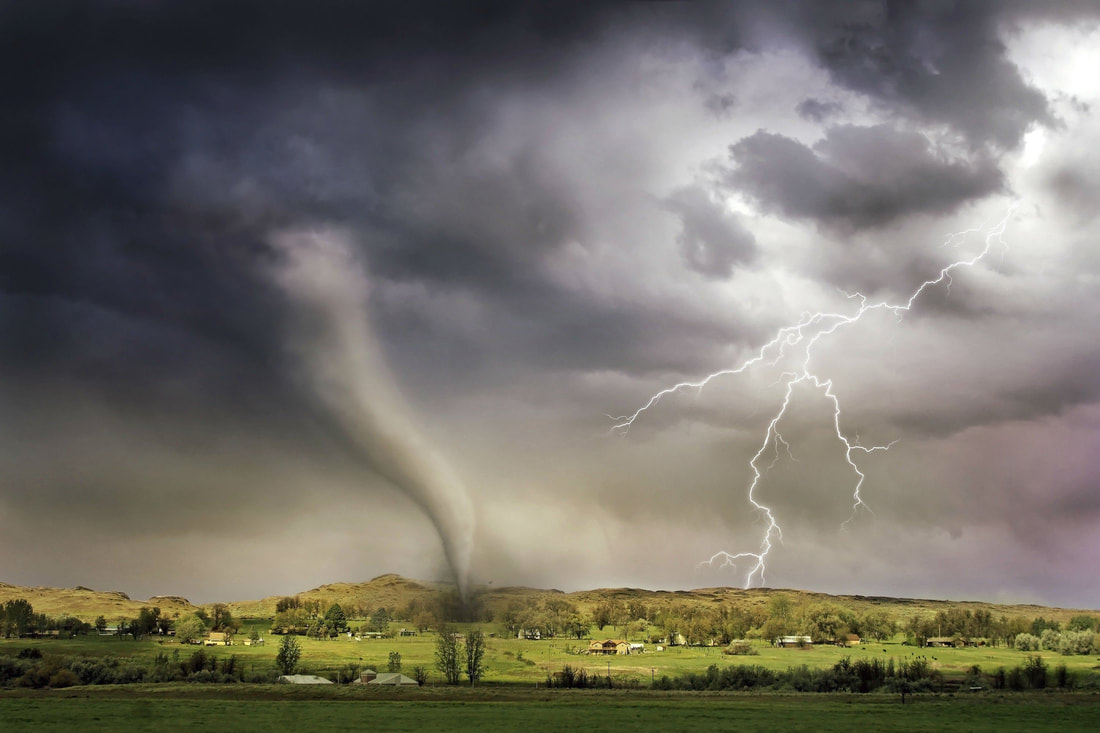|
‘Leadership is influence.’ (John C. Maxwell) It’s one thing to have insight. It’s another thing to exert influence on the basis of that insight. This is often a dilemma for leaders and professionals when seeking to influence change across dynamic, complex systems and relationships. After all, what if I can see something important, something that could make a significant difference, yet I can’t gain access to key decision-makers? Or what if, even if I can get access, they’re not willing to listen? What if people are so preoccupied by other issues that my message is drowned out by louder voices and I can’t achieve cut-through? Early in my career, I worked as OD lead in an international non-governmental organisation that was about to embark on radical change. I’d studied OD at university on a masters’ degree course and, based on that experience, could foresee critical risks in what the leadership was planning to do. I tried hard to get access to raise the red flags but, by the time I met with the leaders, it was too late. They had already fired the starting gun on their chosen programme. My concerns turned out to be well-founded, and the changes almost wrecked the organisation. I agonised for some time over why I’d been so ineffective at influencing their decisions. I learned some valuable lessons. Firstly, the view I held of my role – the contribution I could bring – was different to that of the leaders. I viewed myself as consultant whereas they viewed me as service provider. Secondly, the leaders had become so emotionally-invested in the change they had designed that they reacted defensively if challenged. They saw my well-meaning red flags as resistance rather than as a genuine desire to help. I would need to change my approach. Since then, I have practised building human-professional relationships with leaders and other stakeholders from the earliest opportunity. These relationships are built on two critical factors: firstly, respect for e.g. the studies, training, expertise and lived experience they bring to the table; and, secondly, empathy for e.g. the responsibilities, hopes, demands and expectations they face – both inside and outside of work. Against this backdrop, I’m able to pray, share my own insights and, where needed, advocate a change from an intention and base of support.
12 Comments
‘If you’re not confused, you’re not paying attention.’ (Tom Peters) Leaders who develop strategy collaboratively with diverse key stakeholders often find that inviting others in proves critical to its success. It recognises that no leader, no matter how knowledgeable or experienced, can know everything and it values the contribution that others can bring. That said, leaders can also feel overwhelmed if levels of participation are high and inputs are complex. These tips (below) are, therefore, designed to help leaders sift through and make sense of the reams of hopes, ideas, information, impressions, data etc. that they may surface and receive through strategy research and through inviting input from various people and groups. They are not intended as a prescriptive one-size-fits-all set of rules. Have a glance and see which, if any, work best for you. 1. Don’t panic In the midst of some great information and ideas, you are also likely to receive input that will look unclear, confusing or contradictory. There may be handwriting you can’t read, comments in shorthand that made sense to the person who wrote them but don’t make sense to you etc. You may receive so much input from diverse people and sources that it could feel bewildering. If so...don’t panic! 2. Research questions Go back to your research questions. Use them as a guide to sift through the input you have received. How far does the overall input contribute to answering the questions you set out to address? Has any of it raised wider or deeper questions that need to be acknowledged? Is any of the input interesting but distracting? Avoid the temptation to race down fascinating rabbit holes that take you off track. 3. Test a hypothesis Some leaders suggest formulating a hypothesis – a provisional answer to the questions you set out to answer – before sifting through responses. This provides a focus, a testing stone, and enables you to check each response: ‘Does this support or contradict the hypothesis?’ If it doesn’t relate to the hypothesis, shelve it for now so that you don’t get distracted. You can always circle back to it later. 4. Cluster responses Some leaders prefer to start with a blank sheet, skim through responses and note intuitively what core themes or ideas emerge. You can then place responses under those themes, adding or modifying themes as the sifting process progresses. Don’t worry about identifying the themes perfectly too early. You can always hone them and see what answers they point towards later. 5. Test your biases It can be tricky for leaders to look at responses afresh, especially if we have a strong interest in the work we do currently or strong views about how we should move forward. During the research phase, I refer to these challenges as ‘blind spots’ (assumptions) and ‘hot spots’ (sensitive areas). Invite others to test your assumptions and to point out if you appear to avoid challenges or new ideas. 6. Trust the process We may have invited and received input from a diverse range of people and groups. Whilst no strategy research will ever be 100% exhaustive and conclusive, the insights that we draw through a collaborative strategy venture will in most cases be good enough – that is, good and enough as a signpost to the future. Pray, be confident in what you know and excited by what you discover! ‘When the winds of change blow hard enough, the most trivial of things can turn into deadly projectiles.’ (Despair.com) You’ve probably heard of change management. You’ve probably heard of change management teams too. You’ve probably heard of change plans, like project plans, sometimes expressed in Gannt charts with rows of scheduled tasks, mapped against proposed timeframes. You’re less likely, I would guess, to have heard of a transition plan. A transition plan deals with the human dimensions of change, the underlying psychological, emotional and relational issues that often prove critical to its success. Whilst change can often be planned and prepared for by agreeing desired outcomes, then working backwards to identify the practical steps needed to achieve them (a bit like working out the mechanical structure of a car engine in order to build one), transitions don’t work like that. A change process may be complex, in that there may be many interlinked moving parts, yet is in principle manageable. A transition process is dynamically-complex and, therefore, inherently unpredictable. This means that transitions can only be handled effectively by ongoing conversations with affected people. It calls for open and honest dialogue. It calls us to be invitational, curious and co-creative. It involves listening, hearing, being responsive and building trust. ‘If we were to do X…what would it mean for you?’ ‘Given what it would mean for you, what would you need?’ Well-led transitions will influence mood, climate, energy, engagement and agency: critical success factors in any change. ‘You can’t depend on your eyes when your imagination is out of focus.’ (Mark Twain) I worked with a group of very busy professionals this week who had carved out precious space in their diaries to help each other think through complex work-related issues. The process I was there to facilitate can be powerful yet demanding and requires presence, focus and careful listening. I’ve noticed that one of the challenges of meeting, particularly online, to do this type of work is that participants can feel time-pressured or tempted to leap straight into the session from other meetings, phone calls or tasks. In order to enable participants to arrive, therefore, I invited them to pause for a moment and to create their own ‘not to-do’ list for the next 12 hours. The session itself would only last for 4 hours, interspersed with breaks, but it allowed them opportunity to reflect and...breathe. After a few minutes, I invited them to disclose highlights from their lists and to share what it was like to identify not to-dos. They said they found it empowering and releasing. Now they could focus. What focusing exercises have you found useful? ‘For every complex problem there is an answer that is clear, simple and wrong.’ (H.L. Mencken) In a world that’s so often characterised by continual change, it appears that one thing that doesn’t change is our continual thirst for new acronyms. VUCA, RUPT or BANI – which best describes your view of reality? Which most helps you, or your clients, move forward to fulfil vision, values and goals, whilst navigating whom or whatever could fly in unexpectedly from left field on route? BANI, a more recent model than its predecessors, has some attractive and useful features for the current context. It acknowledges profound phenomenological dimensions of human experience, not simply the dynamics of the environmental realities we face. BANI draws attention to Brittleness, Anxiety, Non-linearity and Incomprehensibility and may provide a platform for addressing them. Brittleness recognises that those things we regard as secure can fall apart overnight. Anxiety points to associated social health risks of anxiety and depression. Non-linear means it’s hard to predict consequences of actions with certainty because influencing factors can spring up from anywhere. Incomprehensible proposes that sense-making is impossible and we can find ourselves bewildered. If that all sounds a bit abstract, think back to what you (and others) have witnessed and experienced in the past 2 years; how much of what has happened could have been known definitively in advance; what the impacts and implications have been for different people, groups and nations; how it has looked and felt; the deep questions it has raised; how clear and agreed a way forward is from here. Macro examples have included the ongoing climate emergency, the Covid19 pandemic, the plastic-in-the-oceans disaster and the migrant crisis. We’ve seen shifts in the world’s political and economic landscapes that have been, at times, so sudden and so dramatic that they’ve caused whiplash and backlash. We have felt the ripple effects in our organisations, communities and personal lives. What wisdom can BANI offer? Here are glimpses: Brittleness calls for resilience and collaboration; Anxiety: for empathy and human-spiritual relationship; Non-linearity: for adaptivity and agility; Incomprehensibility: for intuition and risk-taking. These are pointers to the kinds of qualities and capabilities we can develop for the future, with courage and humility as an underpinning stance. Do you feel dazed and confused in a BANI world? Curious to discover how I can help? Get in touch! There’s an old Taoist story. It teaches that the answer to everything that goes apparently well or badly is maybe. ‘I got a new job. That’s great, isn’t it?’ Maybe. ‘I just crashed my car. That’s terrible, isn’t it?’ Maybe. The reason for maybe is that we don’t know the wider context or consequences of any encounter or event. We cannot predict all the ripple effects, some of which may continue down through the years or into completely different relationships or parts of the world. What we construe as a curse in the moment may turn out to be a blessing in disguise and vice versa. It’s complex.
Some of this is about framing and re-framing. We can view the same situation, the same moment, through different metaphorical lenses and see what different pictures emerge. Take, for instance, a change in any team in any organisation. The change will have pros and cons – and different pros and cons depending on which stakeholder perspective we or others view it from. It could touch on, say, wider roles, relationships and resources. Maybe depends on viewpoints and values: who is impacted and how, what it means psychologically and culturally and how it feels for them and others. Maybe is also about time lags and time-frames. A change that creates pain now may result in positive benefits in the future or vice versa. An action we take here and now could trigger unintended consequences, a chain reaction down the line that we could never have imagined or anticipated. As such, maybe calls for openness, curiosity and humility. It calls us - and clients - to learn to approach 'knowing' and 'certainty' in tentative spirit, particularly in fluid (VUCA) environments. For me, it calls for prayer and patience too, to seek God’s insight and wisdom. What does maybe mean for you? ‘People look for HD photos whereas what’s really possible is dots on a page.’
I met with an insightful strategy consultant last week who used this ingenious metaphor. We live in an era where leaders face increasing complexity, ambiguity and uncertainty. This can evoke anxiety, risk-aversion and paralysis in decision-making. Against this backdrop, it’s tempting to attempt to increase our certainty by gathering and analysing exhaustive (sometimes exhausting!) reams of data, information and evidence. It’s as if we may want and need to see a high definition photo where every detail is present and crystal clear before feeling confident enough to take a step forward. I do get it. There are good reasons for basing decisions on research and evidence, especially in high-risk environments where to do otherwise could be reckless at best and dangerous at worst. Or if we miss great opportunities because we hadn’t looked well enough before leaping…or failing to leap. But what if such situations are the exception rather than the norm? What if ‘sufficient’ evidence is unavailable, or if it would take more time or other resources to gain it than we can afford, or if conditions are so complex and fluid that today’s truth fades quickly into tomorrow’s jaded history? Picture this alternative. A blank sheet on which we place dots. We can place them wherever we want. The dots represent what we do know, what we have a gut feel for, what we could reasonably find out – if needed. We can add, remove or move dots as things progress. We can experiment with reconfiguring the dots into different, creative, shapes and patterns. We can play with colouring the space between the dots, around the dots, to see what picture, what possibilities, what passions emerge. I love this idea of the dots. Of joining the dots. Of steps in faith. Of creating future. It’s tempting to think the world has gone crazy. A crisis in one place followed in quick succession by a crisis somewhere else. Yet situations and events that appear completely unrelated can look mysteriously connected once we pause, step back from the dramatic media rhetoric and look more deeply. ‘What is really going on here?’, ‘What is influencing what?’, 'What patterns and links are forming?'
McDermott & O’Connor in ‘The Art of Systems Thinking’ distinguish between: simple complexity (e.g. a car engine that is complicated because it has numerous parts - yet it parts interact predictably and in fixed ways) and dynamic complexity (e.g. human systems such as families, teams, communities, nations etc. where different parties not only interact but change and influence each other). Dynamic complexity at a global level is being accelerated and amplified by technology and social media that enable people to connect, interact and influence each other faster than ever before. As Wheatley explains in ‘Leadership & The New Science’, however, this does not necessarily create ever-increasing chaos. It’s as if even complex human systems find their own equilibrium and flow. So what does this mean for leadership, OD and coaching? Firstly, look beyond the issue itself to inquire into ‘what else’ is creating and sustaining the conditions for it to arise. Secondly, view human systems in terms of relational influence rather than mechanics. Thirdly, be curious and responsive to what and where energy is emerging and shifting. Fourthly, be ready to let go - and dance! Gone are the days when we could think of ourselves, our teams and our organisations in splendid isolation. We now discover, abruptly at times, that everything is interconnected, everything is interdependent. We see impacts of global markets on domestic markets and vice versa. We see impacts of national and international policy on local people. We see sudden, unexpected changes that come out of nowhere, traceable only in retrospect, that dramatically shape our lives and work.
In the third sector where I’ve spent most of my professional life, we used to think of, say, human rights, international development and environmental issues as completely separate. We now see them as integrally related. Make a change in one area and it impacts on people and communities in another area - or in another part of the world. We can’t always see the connections but we can certainly feel them. This makes the world more complex, less predictable, less certain. A pervasive atmosphere of complexity and uncertainty can evoke personal, social, economic and political anxiety. Leaders and ideologies are emerging across the globe that offer simplistic solutions, often at the extremes, that create a comforting illusion. They may help us sleep more peacefully, live more purposefully. Yet they ignore, dismiss or suppress aspects of reality that don’t fit their simple narrative. To break free from this, we must learn to surface and live with uncomfortable truths. A stark example: witness the rhetoric in the UK and other Western nations this year in the face of unplanned, large-scale migration into Europe. Social media is filled with heated debate. ‘They’re all helpless refugees – rescue them!’ vs ‘They’re all terrorist sympathisers – reject them!’ It poses an either-or, black-white choice. To say, ‘It’s complicated. It calls for a sophisticated response’ sounds like a cop out, a refusal to take sides, a stance devoid of passion, a betrayal of a cause. So we find ourselves facing an existential crisis, created and fuelled in part by a perfect storm of influences. These include: spread of Islamic extremism, growth in right/left wing nationalism, intolerant illiberal liberalism, gross economic inequality, unprecedented global awareness via the internet, powerful social media, more failed states, huge displacement of people, alarming climate change. It can feel perplexing, confusing, debilitating. How to take a stance in the midst of all this? Adrian Spurrell (Synapse Solutions), my professional mentor, has been a persistent voice of challenge and support this year. ‘We can be driven by fear or by hope. Choose hope.’ It reminds me of hope in the Christian gospel too – a faith I experience as real – when we affirm the birth of Jesus Christ. It’s a mysterious faith that holds onto hope, is held onto by hope, often in the midst of hope-lessness. May we know peace and hope this Christmas time and the courage to stand in 2016. |
Nick WrightI'm a psychological coach, trainer and OD consultant. Curious to discover how can I help you? Get in touch! Like what you read? Simply enter your email address below to receive regular blog updates!
|








 RSS Feed
RSS Feed